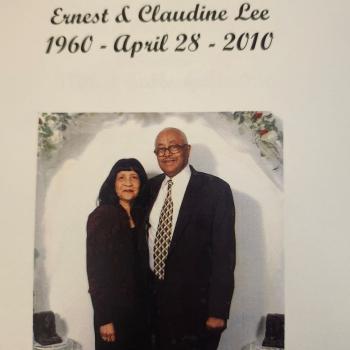From my vantage point, that sort of insularity creates many of the problems I have with the conservative evangelical church, as in their stance on gay rights, for example. The fact that they are not open to conversation on lots of these issues, because they don't speak to people outside of the church, creates these calcified positions that do not incorporate moderating information. Recently I listened to a live-stream podcast of a two-day conference held at Liberty University. The speakers were all evangelical leaders and lawyers who talked about how to get around anti-discrimination hiring policies and how to educate children to stay away from gays.
The one gay speaker they featured at the conference was someone who had "overcome" his sexual orientation. He was there to talk about how to approach gay people in a way that invites them to do the same thing he had done. The fact that there was this two-day conference on homosexuality that didn't feature any voices from the outside, or even any progressive evangelical voices, was depressing. Depressing. That's a real problem. If I can say that I hope this book inspires anything in the evangelical community, I would hope that my willingness to take their attitudes seriously would inspire a parallel willingness to take progressive voices seriously within the conservative evangelical community.
Evangelicals are always interested in learning what we can do better to welcome people into our churches. What might evangelicals learn from your experience about better welcoming the Other?
I did find it difficult to integrate into Thomas Road, but there was a real cultural chasm I had to cross. There's an evangelical vernacular I had to learn. That difference in vernacular is a real blockade for someone like me, who has no religious background at all. Sometimes I also felt a little intimidated by the sense of a panopticon, that everyone wanted to know everybody. That moment during Sunday service when you shook the hands of everyone around you-I came to like that sense of community, but when I was first there, I wanted to be invisible for a while.
So I was turned off at first by this seamless sense of enthusiasm and exuberance. Since the culture I come from makes space for negativity, cynicism, and a complexity of mood, I didn't know how to interact with this smiley-face attitude that everybody was giving me. Because everyone was so cheerful, it felt inauthentic to me. That took some getting used to.
Finally, did your core beliefs change during your time at Thomas Road Baptist? Did you find your views regarding God and our eternal destiny opening up to change? And do you think you might have become a believer, if you had not been a committed atheist from the start?
Visit Gina's website or blog, or purchase the book from Amazon.com.
For more articles like this, see Patheos' Evangelical Portal.





